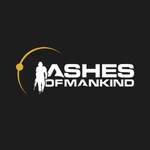Critical evaluation
Evaluating the robustness and completeness of the research into the Ashes of Mankind team is crucial for understanding their potential to succeed in the competitive Web3 gaming landscape. The analysis provides a solid foundation by detailing the leadership team's qualifications, operational team expertise, and advisory contributions, but significant gaps remain. Based on the rubric, the research falls into the **Average** category, as it covers key aspects but lacks depth in critical areas like long-term sustainability plans and specific technical challenges in Web3.
-
The leadership team's qualifications are well-documented, with detailed descriptions of Adrien David and Obinna Oparah's professional backgrounds and past successes.
- Adrien David's experience in leading high-profile gaming projects like Predator and Atlas is highlighted.
- Obinna Oparah's technical expertise from Unity Technologies and his podcast The Debug Log are emphasized.
-
The operational team's composition and roles are described, showcasing diversity in skills and relevant experience.
- Mustafa Top's expertise in Unreal Engine 5 and contributions to games like GRIP are noted.
- The inclusion of advisors like Douglas H. Kennedy adds strategic value, particularly in game economics and community engagement.
-
The research lacks depth in critical areas, such as the team's ability to overcome specific Web3 challenges and their long-term sustainability plans.
- No detailed discussion on how the team will address technical hurdles like scalability or blockchain integration complexities.
- Little information on the team's strategies for maintaining long-term player engagement and economic balance in the game's ecosystem.
-
The vision for Ashes of Mankind is clearly outlined, focusing on gameplay over blockchain hype, but the analysis does not fully explore its feasibility.
- While the team's focus on accessibility and player-driven economies is emphasized, there is no evidence provided to support the practical implementation of these concepts.
- The partnership with Ultra is mentioned but not deeply analyzed in terms of its impact on the game's technical execution.
Follow-up questions
How does the team plan to address the technical challenges of blockchain integration, such as scalability and transaction speed, to ensure a seamless gaming experience?
- Without understanding the team's technical strategies, stakeholders cannot evaluate the feasibility of their vision for a seamless Web3 gaming experience, which is critical for the game's long-term success.
What are the team's long-term sustainability plans for maintaining player engagement and economic balance within the game's ecosystem?
- Sustainability plans are essential to assess the game's ability to retain players and ensure a fair in-game economy, which directly impacts its viability and appeal in the competitive Web3 gaming market.
How does the partnership with Ultra specifically enhance the game's blockchain integration and user experience?
- A detailed analysis of the Ultra partnership is necessary to understand its contribution to the game's technical execution and user-friendly design, which are key factors in attracting both Web2 and Web3 players.




